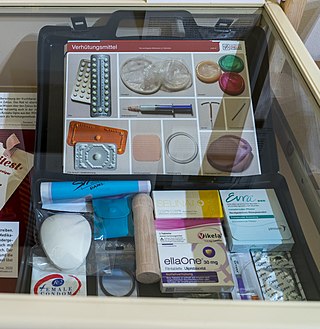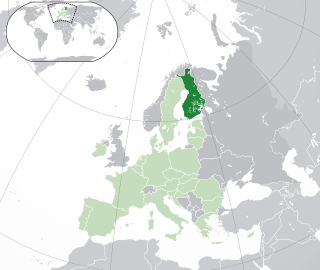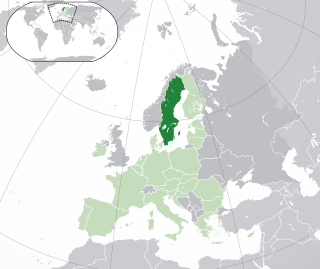
Sex education, also known as sexual education, sexualityeducation or sex ed, is the instruction of issues relating to human sexuality, including human sexual anatomy, sexual activity, sexual reproduction, safe sex, and birth control, sexual health, reproductive health, emotional relations and responsibilities, age of consent, and reproductive rights. Sex education that includes all of these issues is known as comprehensive sexuality education, and, especially in more socially conservative countries and parts of the United States, is often opposed to abstinence-only sex education, which only focuses on sexual abstinence. Sex education may be provided as part of school programs, public health campaigns, or by parents or caregivers. In some countries it is known as "Relationships and Sexual Health Education".

The LGBT community is a loosely defined grouping of lesbian, gay, bisexual, and transgender individuals united by a common culture and social movements. These communities generally celebrate pride, diversity, individuality, and sexuality. LGBT activists and sociologists see LGBT community-building as a counterweight to heterosexism, homophobia, biphobia, transphobia, sexualism, and conformist pressures that exist in the larger society. The term pride or sometimes gay pride expresses the LGBT community's identity and collective strength; pride parades provide both a prime example of the use and a demonstration of the general meaning of the term. The LGBT community is diverse in political affiliation. Not all people who are lesbian, gay, bisexual, or transgender consider themselves part of the LGBT community.

Urvashi Vaid was an Indian-born American LGBT rights activist, lawyer, and writer. An expert in gender and sexuality law, she was a consultant in attaining specific goals of social justice. She held a series of roles at the National LGBTQ Task Force, serving as executive director from 1989-1992 — the first woman of color to lead a national gay-and-lesbian organization. She is the author of Virtual Equality: The Mainstreaming of Gay and Lesbian Liberation (1995) and Irresistible Revolution: Confronting Race, Class and the Assumptions of LGBT Politics (2012).

Salatut elämät is a Finnish television soap opera that premiered on MTV3 on 25 January 1999. The series' storylines follow the daily lives of several families who live in the same apartment block in Helsinki. The series primarily centres on the residents of Pihlajakatu and its neighbouring areas. Only six of the original twenty characters Ismo, Kalle, Ulla, Aki, Kari and Elina still remain in the series, and most of the series' current characters have made their debuts in 2014 or later. Ismo is the only character who has never left the series.

Lesbian, gay, bisexual, and transgender (LGBT) rights in Finland are among the most advanced in the world. Both male and female same-sex sexual activity have been legal in Finland since 1971 with "promotion" thereof decriminalized and the age of consent equalized in 1999. Homosexuality was declassified as an illness in 1981. Discrimination based on sexual orientation in areas such as employment, the provision of goods and services, etc., was criminalized in 1995 and discrimination based on gender identity in 2005.

Lesbian, gay, bisexual, and transgender (LGBT) rights in Sweden are regarded as some of the most progressive in Europe and the world. Same-sex sexual activity was legalized in 1944 and the age of consent was equalized to that of heterosexual activity in 1972. Sweden also became the first country in the world to allow transgender people to change their legal gender post-sex reassignment surgery in 1972, whilst transvestism was declassified as an illness in 2009. Legislation allowing legal gender changes without hormone replacement therapy and sex reassignment surgery was passed in 2013.

Homophobia encompasses a range of negative attitudes and feelings toward homosexuality or people who identify or are perceived as being lesbian, gay or bisexual. It has been defined as contempt, prejudice, aversion, hatred or antipathy, may be based on irrational fear and may sometimes be attributed to religious beliefs.

Mariela Castro Espín is the director of the Cuban National Center for Sex Education in Havana, as well as the National Commission for Comprehensive Attention to Transsexual People, and an activist for LGBT rights in Cuba. Castro is an outspoken advocate for the LGBT+ community as well as dissolving some of the antiquated stigmas and stereotypes that surround the community. She is the daughter of former Communist Party First Secretary Raúl Castro and feminist and revolutionary Vilma Espín, and the niece of former First Secretary Fidel Castro.

Same-sex parenting is the parenting of children by same-sex couples generally consisting of gays or lesbians who are often in civil partnerships, domestic partnerships, civil unions, or same-sex marriages.

Lambda Istanbul is a Turkish LGBT organization. It was founded in 1993 as a cultural space for the LGBT community, and became an official organization in 2006. Clandestine Pride events were held in Turkey starting in 1993, and with Lambda Istanbul participation, they became public marches.
The Blue Diamond Society is an LGBT rights organization in Nepal. It was established in 2001 to advocate for change in the existing laws against homosexuality and to advocate for the rights of Nepal's marginalized gay, transgender, and other sexual minority communities. The Blue Diamond Society also aims to educate Nepalese society on proper sexual health, to advocate with local governments for queer minorities, to encourage the artful expression of LGBTQ+ youth, and to document violence against Nepalese queers. Another of its contributions to Nepal's LGBTQ+ communities is to provide care, counseling, and services to victims of HIV/AIDS. The BDS has also recorded various abuses against the community ranging from physical and verbal abuse and discrimination inflicted in workplaces and healthcare facilities.
The Naz Foundation (India) Trust is a non-governmental organisation (NGO) in that country that works on HIV/AIDS and sexual health. It is based in the Indian capital of New Delhi.
Homosexuality, as a phenomenon and as a behavior, has existed throughout all eras in human societies.

"Ihmisten edessä" is a Finnish-language pop song by Finnish pop singer Jenni Vartiainen. It was released by Warner Music Finland on 5 September 2007 as the second single from her eponymous debut album Ihmisten edessä.
This article is about lesbian, gay, bisexual and transgender (LGBT) history in Finland.

Historically speaking, lesbian, gay, bisexual, and transgender (LGBT) people have not been given equal treatment and rights by both governmental actions and society's general opinion. Much of the intolerance for LGBT individuals come from lack of education around the LGBT community, and contributes to the stigma that results in same-sex marriage being legal in few countries (31) and persistence of discrimination, such as in the workplace.

The following outline offers an overview and guide to LGBT topics.

Intersex people in Taiwan currently face some gaps in legal protection of their rights to physical integrity and bodily autonomy, and in protection from discrimination on the basis of sex characteristics, with significant improvements in recent years.
The history of transgender people, their rights, legislation concerning them, and transgender healthcare in Finland dates from the earliest records in the 19th century.















